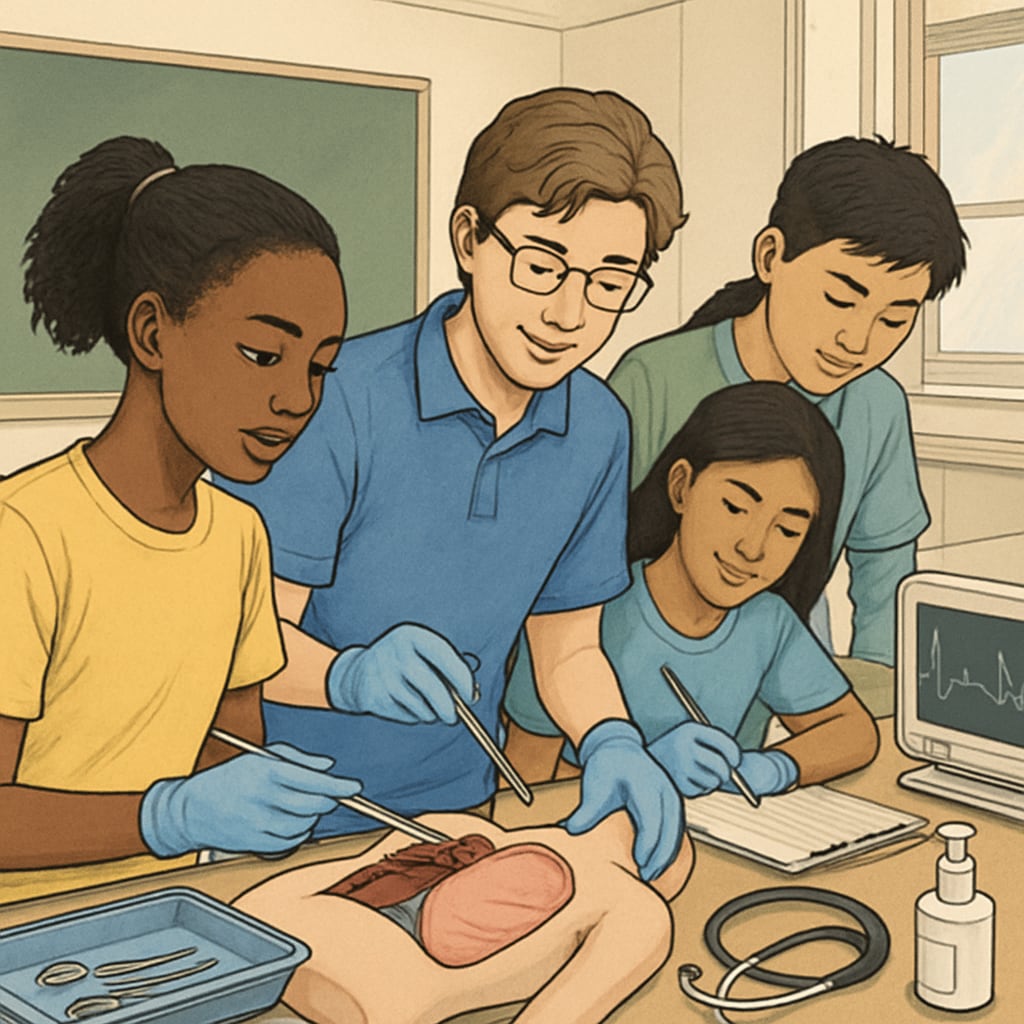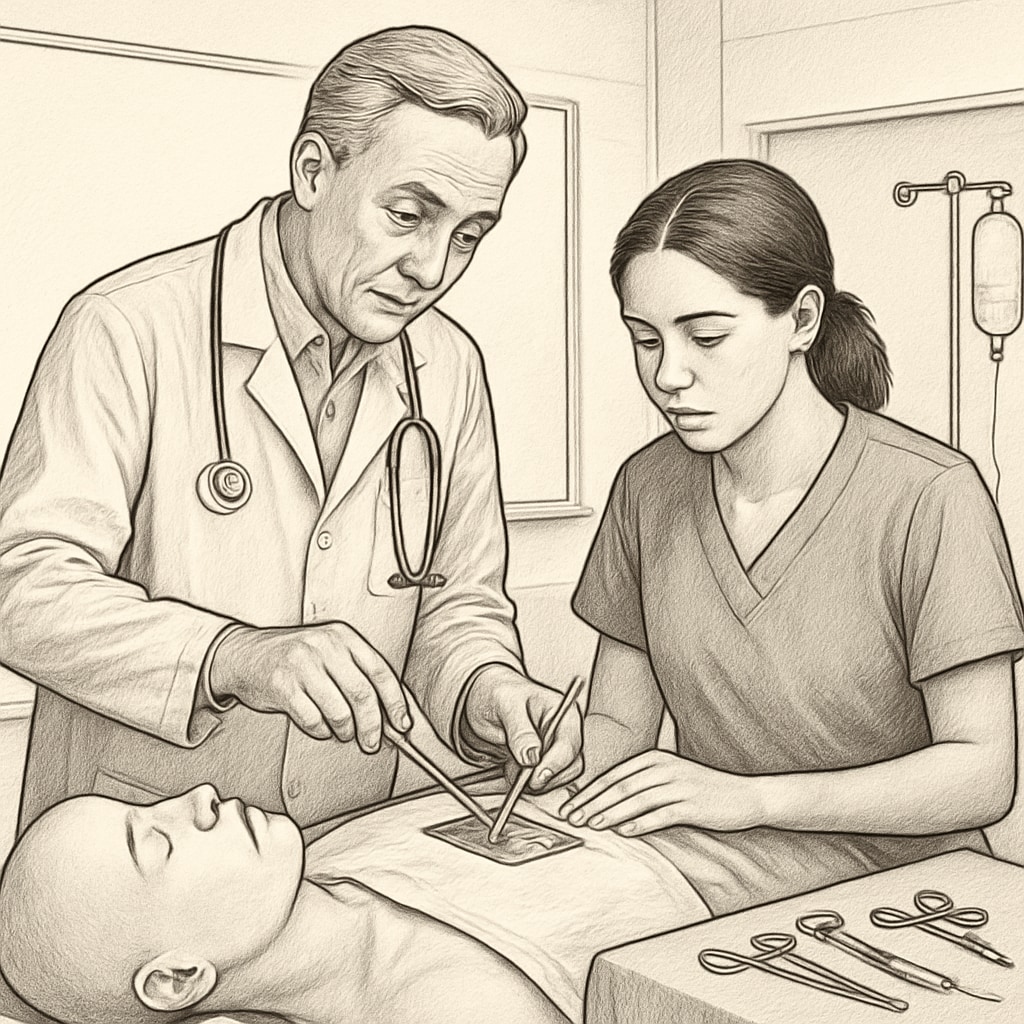Understanding the intricacies of the medical profession can be challenging for young learners, but tools like career surveys, physician interviews, and early medical education initiatives can provide valuable insights. For K12 students, exploring these paths early can help shape informed career decisions and open doors to exciting opportunities in the medical field. This article delves into the importance of introducing medical career exploration during K12 education and offers practical strategies for implementing physician interviews and career surveys effectively.
Why Early Medical Career Exploration Matters
Introducing students to medical careers at a young age serves multiple purposes. First, it helps demystify one of the most respected and demanding professions. Second, it enables students to identify whether their interests and skills align with the requirements of the medical field. According to research, early exposure to career options improves decision-making skills and increases the likelihood of long-term satisfaction in chosen occupations. Medical career exploration can be particularly impactful because it highlights the diverse roles within healthcare, from surgeons and pediatricians to radiologic technologists and researchers.
Moreover, early exploration fosters critical thinking and problem-solving skills, which are vital for success in medicine. For K12 students, this is an opportunity to learn not just about the technical aspects of the field but also about the human empathy and resilience required to excel. As a result, integrating medical career exploration into K12 education can have far-reaching benefits.

How Career Surveys and Physician Interviews Can Help
Career surveys and physician interviews are two powerful tools for guiding students toward medical professions. Career surveys allow students to assess their interests, aptitudes, and values, offering personalized insights into potential career paths. These surveys can also reveal lesser-known roles within healthcare, broadening students’ understanding of the field. Websites like Occupational Outlook Handbook provide valuable resources for exploring job descriptions and educational requirements.
Physician interviews, on the other hand, offer a more personal perspective. By speaking directly with medical professionals, students can ask questions about the realities of working in healthcare, the challenges of medical school, and the rewards of patient care. This firsthand knowledge helps students form a realistic picture of the profession and build a network of mentors who can support their journey.
Practical Strategies for Implementing Career Surveys and Interviews
To maximize the impact of these tools, educators and parents can take the following steps:
- Incorporate career surveys into the curriculum: Schools can integrate career surveys into health or science classes, ensuring students have structured opportunities to explore their interests.
- Organize physician panels and workshops: Hosting events where physicians share their experiences and answer questions can inspire students and provide them with diverse perspectives.
- Encourage shadowing opportunities: Whenever possible, students should observe healthcare professionals in action to gain practical insights into daily responsibilities.
- Leverage online resources: Platforms like MedEdPORTAL offer valuable educational materials for students interested in medicine.
By adopting these strategies, schools and families can make career exploration both engaging and informative for K12 students.

The Long-Term Benefits of Early Medical Career Exploration
When K12 students engage in medical career exploration, they gain more than just knowledge about the profession—they develop essential life skills. These include self-awareness, goal-setting, and the ability to adapt to challenges, all of which are critical for success in any career. Furthermore, early exposure to medicine can inspire students to pursue STEM (Science, Technology, Engineering, and Mathematics) subjects with greater enthusiasm, laying a solid foundation for future academic and professional achievements.
In conclusion, tools like career surveys and physician interviews play a pivotal role in helping K12 students navigate the complex world of medical professions. By providing early guidance and fostering curiosity, educators and parents can empower students to make informed choices about their futures. Whether a student dreams of becoming a surgeon or a medical researcher, the journey begins with exploration and inspiration.
Readability guidance: This article uses short paragraphs to enhance readability and includes actionable strategies to engage K12 students. Transition words like “however,” “in addition,” and “therefore” ensure smooth progression between ideas.


